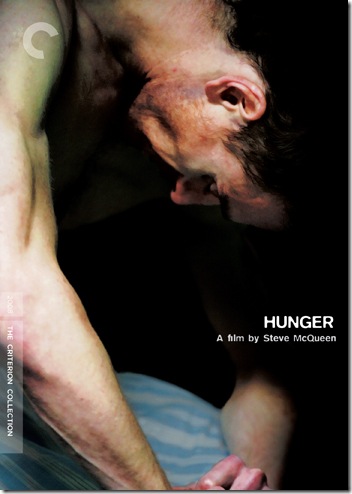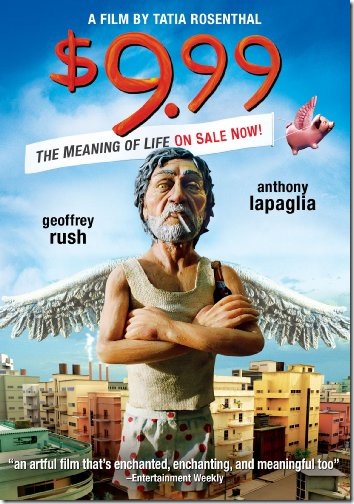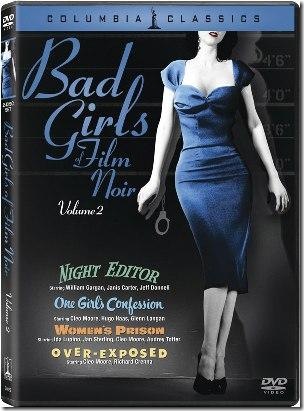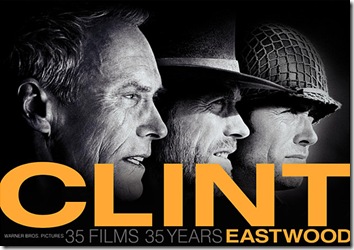While we’ve been dedicated to reviewing the newest movies to hit theaters on a regular basis, we here at ArtsPaper know that most viewing is done at home these days. Many movies already debut on pay television concurrently with their theatrical release, and many quality films either don’t receive theatrical distribution or don’t play in the comparatively small South Florida market.
Quite simply, to ignore DVD is to ignore the future of cinema — as sad as that may sound to purists like myself.
Every couple of weeks I’ll be looking at some of the most interesting DVDs to hit the shelves, focusing particularly on the ones that fly under Blockbuster’s radar. Here’s the first installment.
Hunger (Criterion Collection)
Release date: Feb. 16
Standard list price: $29.99
With art-film distribution shrinking and theater bookers growing increasingly unimaginative, Hunger is just the kind of movie destined to slip through the cracks. The hyperlimited release of this punishing British drama – in Palm Beach County, it played for one week at one theater – is a great shame. Hunger should have been an event movie, and in the auteur-valuing ‘70s, it would have shaken up the moviegoing mainstream. Thankfully, the Criterion Collection has helped cement Hunger as the masterpiece it is with a superlative DVD.
The debut feature from writer-director Steve McQueen (no relation to the late Hollywood tough guy), Hunger dramatizes the events leading up to, and culminating in, the 1981 hunger strike by imprisoned members of the Provisional Irish Republican Army against the Thatcher-led British government.
The prisoners, members of a paramilitary guerrilla organization, struck to attain political status, and they eventually did – after 10 strikers, led by Irish national hero Bobby Sands, starved themselves to death (Most of this is not explained in the film, and it may help to first look at the informative 1981 news program The Provos’ Last Card, which is included on the DVD as a supplement).
McQueen, a visual artist whose early shorts were projected onto art gallery walls, wanted viewers to feel fully immersed in the prison experience, and indeed, Hunger engages on an almost tactile level. McQueen’s camera glides poetically over the prisoners’ feces as it’s smeared into modern art on the concrete walls, their discarded food as it congeals into goulash in the cell corners and their urine as it’s poured under the doors toward janitorial extinction.
We then get a sense of the unconscionable abuse suffered at the hands of the prison guards, filmed with unflinching, cover-your-eyes authenticity. Heads are slammed into walls, and every orifice is probed. Attempts at prisoner retaliation yield only bloodier beatings. It looks uncompromisingly real.
McQueen accomplishes all of this with an economy of words as well an austerity of images. There’s almost no dialogue in the picture aside from its herculean theatrical centerpiece: a 23-minute conversation, filmed largely in a single-take long shot, between Sands (Michael Fassbender) and a Catholic priest (Liam Cunningham) who tries to persuade the angry inmate not to go through with the hunger strike.
When Sands finally does, in the movie’s final third, the results are even more harrowing. It’s a tour de force of dedication from Fassbender, whose emaciated frame begins to look exceedingly unhealthy until it’s all bloody cysts and saggy flesh on bones.
In the enlightening interview with McQueen included on the DVD, he calls the 1981 hunger strike the most important event in contemporary British history. But he never bogs the film down in political didacticism, letting the untraditional beauty of his images provide the message. McQueen treats us to a body’s physical deterioration with medical-school veracity and distance, leaving us angered and shaken to the core – more so than in almost any overtly political polemic.
A director poised to become an international arthouse darling, McQueen has already been tapped to film the story of another significant figure, African musician and activist Fela Kuti.
$9.99 (E1 Entertainment)
Release date: Feb. 23
SLP: $22.49
The witty script and idiosyncratic insights of this feature from Israeli director Tatia Rosenthal are enough to carry it, and its stop-motion animation style will make it either doubly fascinating or frustratingly distracting, depending on each viewer’s disposition.
Nevertheless, $9.99 is a marvel of three-dimensional, deep-focus cinematography, and the film’s subject matter is no less ambitious than the meaning life, which can be found in a little boy’s piggy bank or a visit from a drunken angel as much as a $9.99 book on the topic. The story weaves together a mosaic of lonely characters mostly situated in the same apartment complex – from a brokenhearted stoner who imagines talkative Lilliputians on his turntable spindle to a single father dealing with the trauma of watching a homeless man shoot himself in front of him.
In the end, we may not understand the meaning of life, but we can appreciate that happiness can come in the strangest of packages. Anthony LaPaglia and Geoffrey Rush contribute voice acting to two of the characters.
Bad Girls of Film Noir, Vols. 1 and 2 (Sony)
Release date: Feb. 9
SLP: $19.99 each
Women were never more dangerous or seductive than in classic films noir, and these two four-film compilations honor some of more obscure, and nastiest, femme fatales from noir’s heyday, 1946 to 1953. Each film is new to DVD, and while the designation of noir can be used a bit liberally (Bad for Each Other, with Charlton Heston as a returning Korean War vet, is more of a straight-up melodrama), these films provide deeper insight for noir fans who have already seen Kiss Me Deadly, The Big Heat and the other heavy hitters, and wish to delve further.
There are no major directors on any of these projects, but there are B stars galore, from Ida Lupino to Gloria Grahame to Cleo Moore. With titles like Women’s Prison and One Girl’s Confession, these are the kind of movies that probably can be judged by their covers, but that isn’t always a bad thing. Only a schlocky noir would christen a movie about a dame from the wrong side of the tracks who tries to go straight by learning photography with the title Over-Exposed. Gotta love that.
Clint Eastwood: 35 Films, 35 Years at Warner Brothers (Warner Home Video)
Release date: Feb. 16
SLP: $129.99
How much Clint is too much Clint? According to Warner Brothers, there is no such thing. This 19-disc collection comprises 34 movies Eastwood made for Warners – as actor, director or both – from 1968’s Where Eagles Dare to 2008’s Gran Torino. It includes a short film by critic Richard Schickel, who wrote the definitive biography on Eastwood, plus a 24-page booklet and rare correspondence and photos, packaged in a double-wide gift box.
Dirty Harry and its numerous inferior sequels are here, of course, as well as masterpieces like The Outlaw Josey Wales, Unforgiven and Mystic River. There’s also garbage in here; I’d pity the fool who braves the hackneyed waters of Firefox and The Rookie. But this set also includes underrated classics such as Bird, White Hunter Black Heart and A Perfect World.
Hopefully, a set like this will bring renewed interest to Eastwood works that have been unjustly ignored.
John Thomason is a freelance writer based in South Florida.



